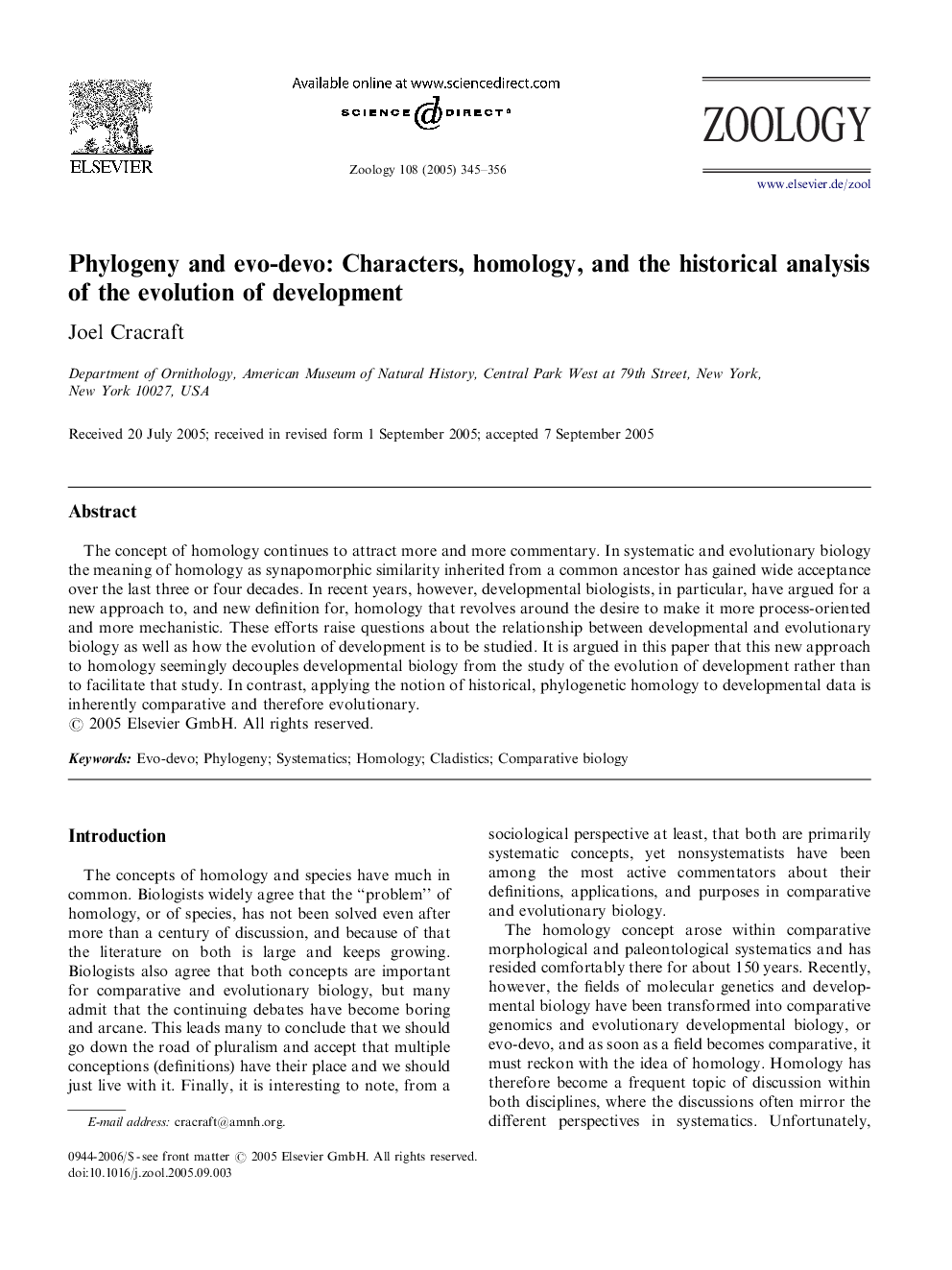| Article ID | Journal | Published Year | Pages | File Type |
|---|---|---|---|---|
| 9110101 | Zoology | 2005 | 12 Pages |
Abstract
The concept of homology continues to attract more and more commentary. In systematic and evolutionary biology the meaning of homology as synapomorphic similarity inherited from a common ancestor has gained wide acceptance over the last three or four decades. In recent years, however, developmental biologists, in particular, have argued for a new approach to, and new definition for, homology that revolves around the desire to make it more process-oriented and more mechanistic. These efforts raise questions about the relationship between developmental and evolutionary biology as well as how the evolution of development is to be studied. It is argued in this paper that this new approach to homology seemingly decouples developmental biology from the study of the evolution of development rather than to facilitate that study. In contrast, applying the notion of historical, phylogenetic homology to developmental data is inherently comparative and therefore evolutionary.
Related Topics
Life Sciences
Agricultural and Biological Sciences
Animal Science and Zoology
Authors
Joel Cracraft,
